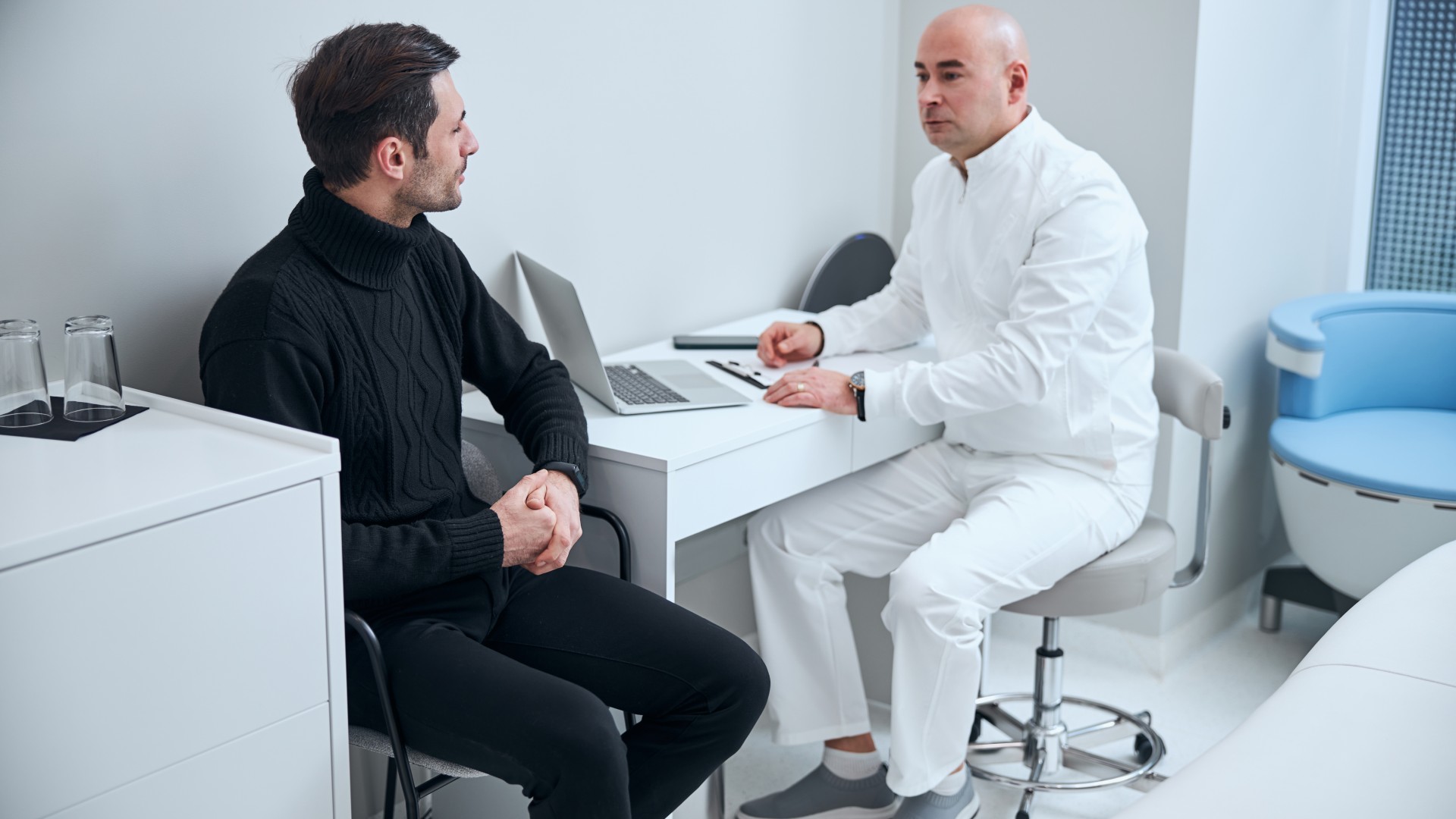Men, Here’s What You Need to Discuss with Your Doctor
By Dr. David Samadi
When it comes to strength and endurance, men often take pride in their physical resilience—running faster, lifting heavier weights, and pushing their limits. Yet ironically, many men hesitate to do one of the most essential things for long-term health: talk to their doctor.
As a urologist, I frequently see men for urinary and prostate concerns. Still, I also witness how broader health issues—like heart disease, diabetes, and various cancers—affect their quality of life. These conditions not only cause discomfort but can also shorten lifespans when left undetected or unmanaged.
Unfortunately, many men delay regular checkups or routine screenings, often waiting until something feels wrong before seeking help. But here’s the truth: proactive healthcare isn’t just about preventing illness—it’s about protecting the freedom to enjoy everything you love, from sports and travel to playing with your grandkids.
Whether you’re in your 30s, 50s, or beyond, there are critical conversations and screenings every man should have with his doctor. Here’s your essential checklist:
1. Prostate Cancer Screening: Know Your Numbers—and Your History
Prostate cancer is one of the most common cancers among men, with about 1 in 8 being diagnosed during their lifetime. The PSA (prostate-specific antigen) test is a quick blood test that measures the level of PSA in your bloodstream. While not a perfect test, elevated levels—typically above four ng/mL—can signal potential issues, including cancer. Not getting screened could mean missing the chance to catch cancer early, when it’s most treatable. I recommend all men, starting at age 40, have a yearly PSA test.
What many men don’t realize is the crucial role family history plays here. If your father, brother, or son has had prostate cancer, your risk may be significantly higher. This connection to your loved ones should motivate you to start the conversation early. Catching prostate cancer in its early stages makes it far more treatable.
2. Colorectal Cancer Screening: Sooner Than You Think
Colorectal cancer is the third most commonly diagnosed cancer in the U.S., affecting both men and women. It can develop with few or no symptoms until it’s pretty advanced. This is why routine screenings, especially colonoscopies, are so vital.
The U.S. Preventive Services Task Force now recommends beginning screening at age 45 instead of 50. However, if you have a family history or concerning symptoms like unexplained weight loss, rectal bleeding, or persistent changes in bowel habits, you might need screening even earlier. It’s better to check than to guess.
3. Blood Pressure and Cholesterol: The Silent Threats
Heart disease remains the leading cause of death among men in the United States. Two of the most significant contributors? High blood pressure and elevated cholesterol levels—both of which can go unnoticed for years.
Routine checkups can detect these issues early. Your doctor can help you monitor your numbers and recommend lifestyle changes or medications if needed. Eating a balanced diet, staying active, quitting smoking, and managing stress all play a role. Don’t wait until you’re feeling chest pain—get ahead of the game.
4. Type 2 Diabetes Screening: Catch It Before It Catches You
An estimated 13% of American adults live with type 2 diabetes, and men are statistically more likely to develop it than women. Even more alarming? Over one-third of adults have prediabetes, a silent condition that often leads to full-blown diabetes if left unmanaged.
Recent guidelines now recommend screening overweight or obese adults starting at age 35. Early detection can empower you to prevent complications like kidney failure, blindness, nerve damage, and increased risk of heart disease. A simple blood test can provide valuable insights—and possibly save your life.
5. Shingles Vaccine: Protect Yourself from Painful Reactivation
If you had chickenpox as a child, the virus is still in your system—and it can come back later in life as shingles, a condition that causes a painful rash and sometimes long-term nerve pain. Approximately 1 million Americans develop shingles each year, with the majority being over the age of 50.
The CDC recommends two doses of the shingles vaccine for adults 50 and older. This vaccine is safe and effective, and it’s one of the best ways to prevent this often debilitating condition, so be sure to discuss it with your doctor during your next visit.
Final Thoughts: A Conversation Could Save Your Life
Men often pride themselves on independence and toughness—but real strength includes taking responsibility for your health. Regular checkups, honest conversations, and proactive screenings are not signs of weakness; they’re essential tools to protect the life you’ve built.
Take the time to schedule your next physical. Ask questions. Share your family history. And don’t be afraid to bring up the uncomfortable stuff—your doctor is there to support you, not judge you.
After all, the best way to keep enjoying life is to stay healthy enough to live it fully. Make your health a priority—not an afterthought. Remember, regular checkups, honest conversations, and proactive screenings are not signs of weakness; they’re essential tools to protect the life you’ve built.
Dr. David Samadi is the Director of Men’s Health and Urologic Oncology at St. Francis Hospital in Long Island. He’s a renowned and highly successful board certified Urologic Oncologist Expert and Robotic Surgeon in New York City, regarded as one of the leading prostate surgeons in the U.S., with a vast expertise in prostate cancer treatment and Robotic-Assisted Laparoscopic Prostatectomy. Dr. Samadi is a medical contributor to NewsMax TV and is also the author of two books, Prostate Cancer, Now What? A Practical Guice to Diagnosis, Treatment, and Recovery, and The Ultimate MANual, Dr. Samadi’s Guide to Men’s Health and Wellness, available online both on Amazon and Barnes & Noble. Visit Dr. Samadi’s websites at robotic oncology and prostate cancer 911.

